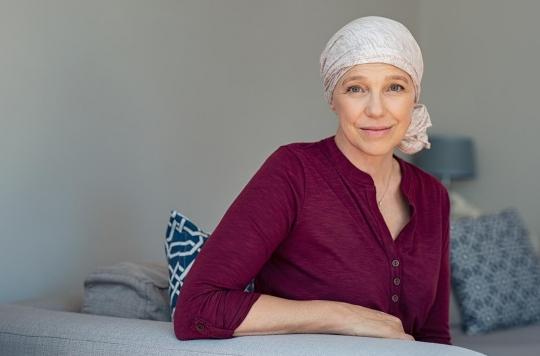If France is in pole position in terms of integrative medicine, before it becomes completely generalized, there are still a few obstacles to overcome.

In 2015, out of the 133.6 billion euros spent by Social Security, spending related to mental health was estimated at 19.3 billion euros. This is more than the 14.1 billion euros dedicated to the treatment of cancer. However, costs are exploding in psychiatry because of compliance problems, where patients stop and then resume their treatment. To remedy this, experts in the health sector are trying to optimize new technologies to make the patient more independent and put them back at the center of a more coherent care pathway that is more adapted to their person. Among the new options tried to keep in touch with the patient between two physical consultations: remote consultations associated with digital therapy for example. If France is in pole position in terms of integrative medicinebefore it becomes completely generalized there are still a few obstacles to overcome.
The error would be to oppose the old world to the new. To do well, all healthcare players should be able to progress together towards more effective medicine, based on a global approach to have an overview of the patient and his disease. From now on, it will no longer be necessary to focus only on the tumor or the patient’s ailments but also on his environment and on all the parameters that make him unique: his rationality, his imagination/intuition, his family anchorage, his capacity for resilience and retreat from the disease. These factors obviously play into the way the patient experiences the treatment.
Consider the patient’s environment as a whole
“The cancer cell exists within an environment, so we have to consider the individual in society, their environment and not just focus on the disease (…) We work with other disciplines to promote overall health. We will have to take into account the sexual, psychological and social health of the individual”, specifies to Medical frequency Doctor Alain Toledano, oncologist and president of the Rafael Institute.
The latter opened in 2018 with the pioneering objective of uniting post-cancer care in one place: integrative therapies provided by a team to 70 patients, research and evaluation as well as training to structure a ecosystem of humanistic innovation intended to take better care of each individual in a global way and to promote the sharing of everyone’s skills.
That cancer is no longer a taboo word
Of course, the integrative medicine revolution comes at a cost. “Developing monitoring platforms has a cost for establishments today, however, it is a saving for the future, since these tools will allow less patient travel, and ultimately, fewer hospitalizations”, assures at Medical Frequency Dr. Florian Scotté, who heads the department of medical oncology and supportive care at Foch Hospital.
Eventually, the exchange of information with the patient should make it possible to answer their questions and their needs, to streamline their care pathway, to facilitate relations with their doctor, and thus optimize healthcare costs. “It’s not elitist medicine, it’s the medicine of tomorrow,” insists Florian Scotté.
“If you take 10% of the Social Security budget to make better use of it thanks to digital because of exam redundancies, we can finance quality”, adds Alain Toledano. But all these changes will above all require an upheaval in mentalities. “We will have to take care of the integration of cancer into society, that it is not a taboo word, that we are not plagued. Each patient deserves to have comprehensive support, and in 2030, we will no doubt have largely overcome this milestone and set up solidarity systems that can allow each patient to be taken care of and not just their illness. There are far too many excluded with a system that is expensive. We are very lucky in France with this system, but it needs to be improved”, concludes the oncologist.
See below the Medical Frequency video on integrative medicine and the autonomous patient:
.
















